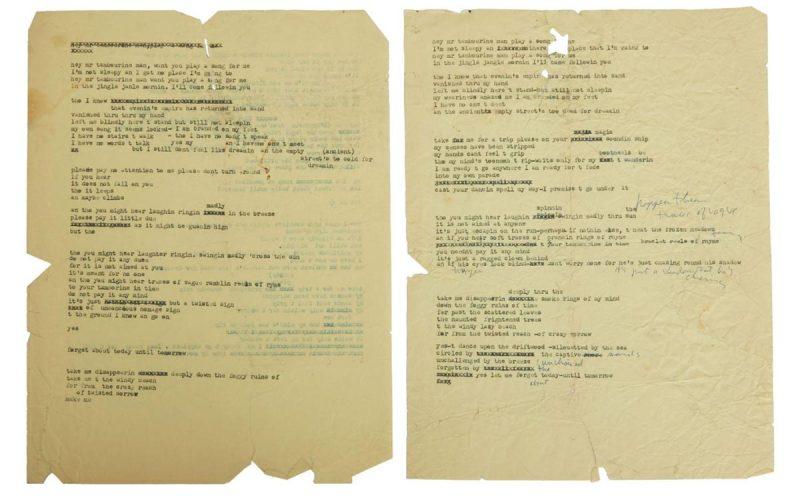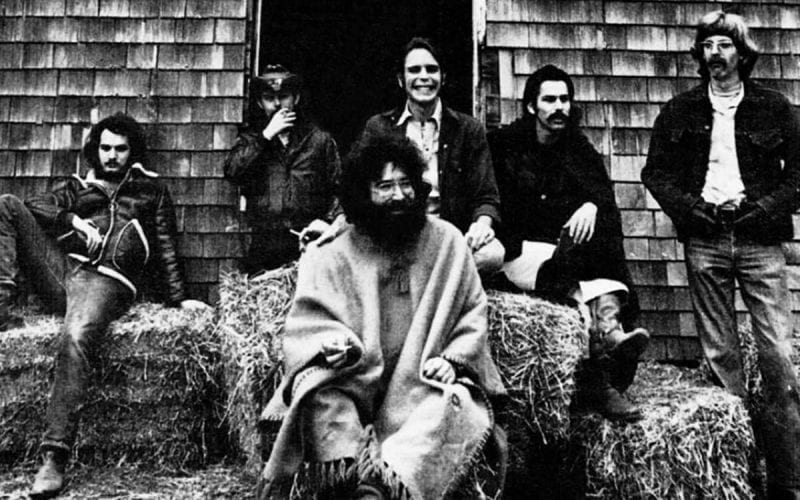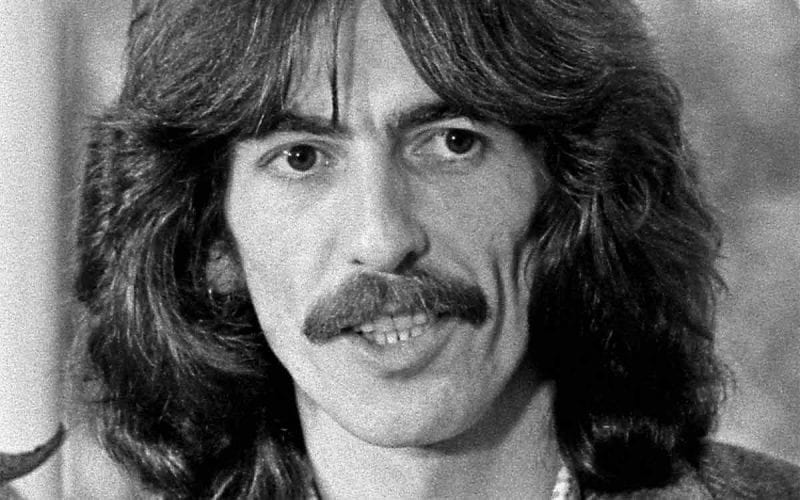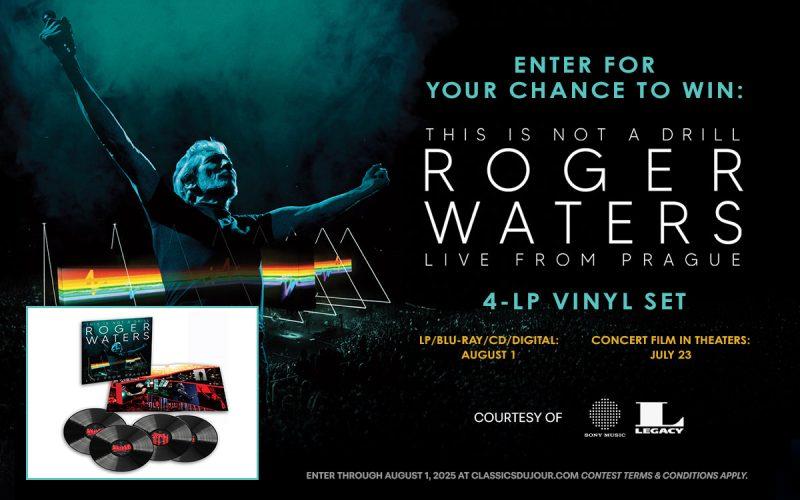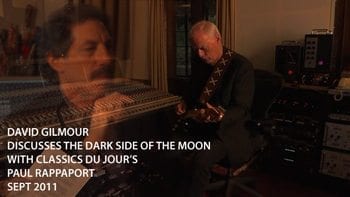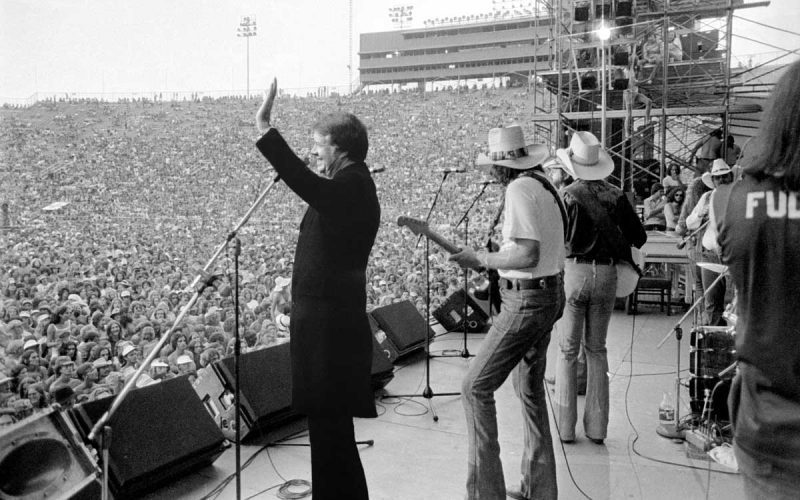
I thoroughly enjoyed Jimmy Carter: Rock & Roll President. I learned a lot from watching it, and I highly recommend the film which you can view on Amazon.
This documentary brought back memories of more innocent times and gave a fresh look at the Carter presidency which I think is needed. So much of what we think of our politicians is shaded by media coverage, and we usually don’t pay all that much attention to our Presidents’ every moves. At least not until Trump, but many of us did so just because he was such a polarizing figure.
If you asked me to describe the Carter presidency before I saw the film I would have said, “Nice guy, not that great of a President.” Largely because of the end of his tenure, and the botched Iran hostage rescue. It made him, and us, look weak in the eyes of the world. But when you see how those events unfolded and were just bad luck more than anything to do with Carter himself, and you also see how much he accomplished during his presidency, you form a whole new opinion of the man.
Not to mention his real care for the hostages and how he flew to Europe to welcome them back as soon as they were released. He had worked so hard for that day. Because Ronald Reagan swallowed up so much of the spotlight running against Carter, and Reagan’s charisma was so grand, it’s a great thing that this film was made to set the record straight. You also learn about all the great things Carter and his wife Rosalynn have accomplished for the world long after his official public service ended.
If you’re a music fan, you’ll love hearing from some great artists like Gregg Allman, Willie Nelson, Bob Dylan, and more. It’s fascinating to see how much Jimmy Carter truly loves music and especially the music of this time. I never realized how many artists rallied around him and, indeed, helped get him elected President.
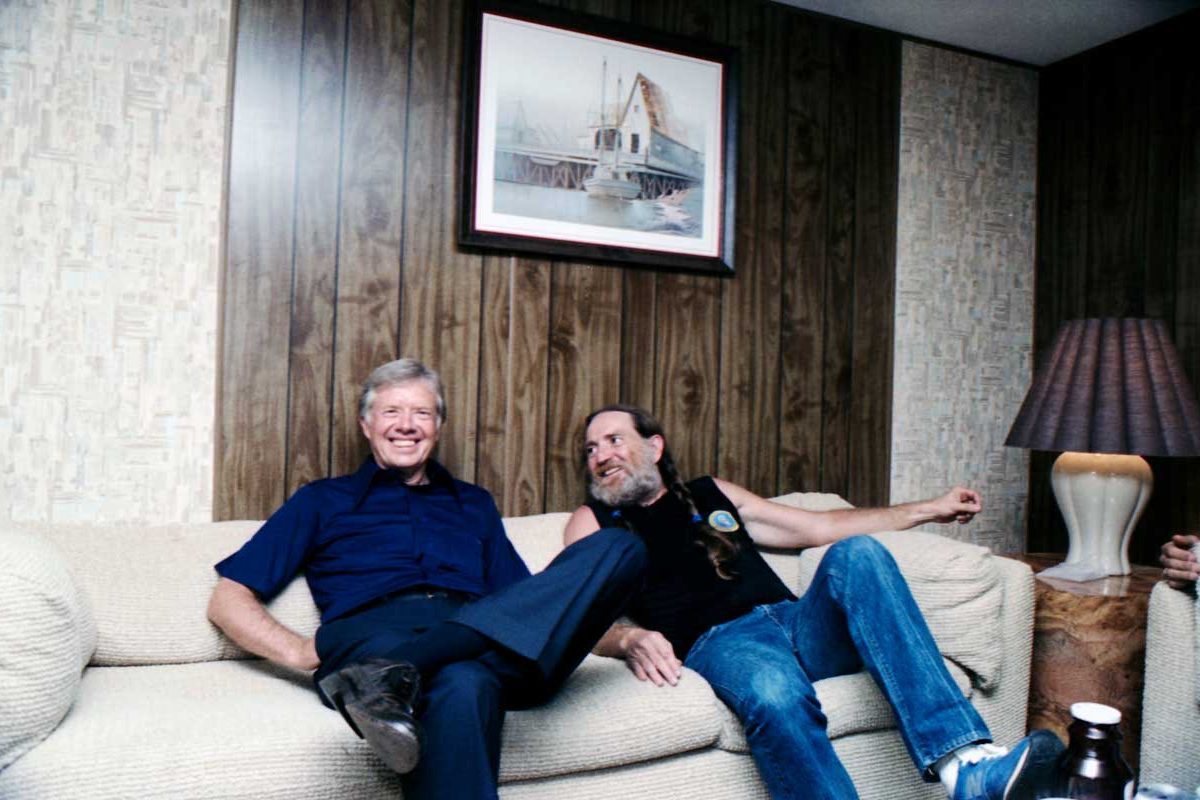
Gregg Allman and Cher visit the White House
One of my favorite stories is about Gregg, who was dating Cher at the time, visiting the White House for dinner. At the beginning of the meal, bowls of water with lemon slices are brought out and both Cher and Gregg drink them thinking they are a cold broth served as the first course. In fact, they were meant as finger bowls to wash your fingers in before dinner. So, the Carter family just watches Gregg and Cher drink from the bowls, and not wanting to embarrass them, don’t say anything. And after they’re done, the rest of the family washes their fingers in their bowls and the meal continues. It’s very cute.
I especially loved the story because something similar happened to me. When I was steadily dating a girl in high school, circa 1968, her parents, who were well-to-do, invited me to dinner at the then-famous Trader Vic’s in Beverly Hills. I was from the blue-collar part of town and not used to fancy dining at all. When you walked into Trader Vic’s, between the décor, mood lighting, and the way the waiters were dressed, you felt like you were in old China.
I used to wear glasses for distance back then (before I got my first contact lenses), and being very vain, took them off as often as I could. So, I’m sitting at the table and the waiter brings out what appears to be spring rolls on a silver tray as the first course. He offers me one and I take my fork to skewer it and put it onto my plate. But after a few tries of the fork not being able to penetrate these seemingly very tough-skinned spring rolls, my girlfriend leans over and explains that these are, in fact, rolled up warmed damp small towels to use to wipe your hands before the meal. I was so embarrassed. Firstly, because I hadn’t seen anything like that before, and second because I was so blind without my glasses, I couldn’t even make out what I was poking at. I thought, OMG, her parents must think I’m such a loser. Luckily, I think they understood and kindly gave me a pass. I’ve always felt bad about that moment but after learning about the Gregg/Cher finger bowl incident I felt like, ‘hey, I’m not the only one!’
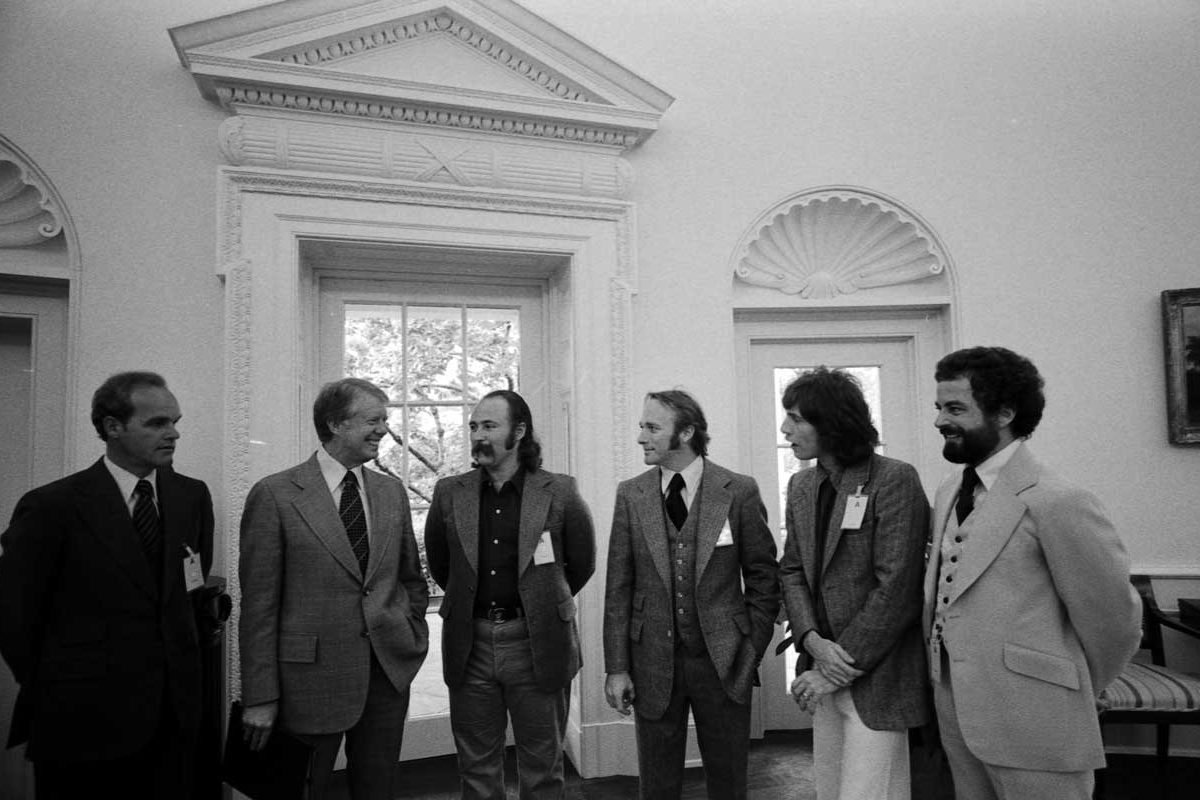
An unlikely friendship
When watching the doc, one thing that really struck me was seeing Bob Dylan visiting the White House and learning about his eventual friendship with Jimmy Carter. Bob says that when they first met, Carter started quoting his lyrics back to him. Turns out Carter used Dylan’s lyrics to communicate certain thoughts to a lot of folks, including his own immediate family. Of course, most of us would never know that if not for this film. And I was shocked that Bob would visit ANY president, much less become friends with one. But Jimmy Carter is quite authentic, a true man of the people, and as it turns out, a bit of a poet himself.
I think Bob was generally moved that a president of the United States would hold him in such high regard. Probably because he’d generally been viewed as a rebel and a trouble-maker by former presidents and the government during the revolutionary 1960’s. Goes to show you that, in some ways, our generation did change the world after all.
I know first-hand that Bob Dylan loves to talk about poetry and other poets’ works. This part of the film reminded me of a dinner meeting I once had with Bob down in the village to discuss a video for a new song. Bob had just returned from Russia where they had given him a prestigious award for his work. He was so pumped that they understood and appreciated what he’d accomplished that all he wanted to talk about was Russian poets and recommend their books for me to read. I couldn’t get a word in edgewise about the video.
You might think that Bob Dylan is quite satisfied with his accomplishments and couldn’t care less what other people think about him, but that’s not true at all.
Fleetwood Mac will never be Bob Dylan
In fact, once we were sitting around a table somewhere in a backstage catering room when Bob asked me a most interesting question. “How does Fleetwood Mac sell six million albums, and no matter what I do, I can only sell a million?”
I was taken aback thinking “Why would Bob Dylan even care? If you’re Bob Dylan what more could you want?”
I answered him honestly, but lightheartedly.
“Bob, Fleetwood Mac goes into a studio for six months, writes catchy tunes designed to be radio hits, takes the time to do many overdubs, and then works on polishing up the sound of the whole thing. You go into a dentist’s office, pull up a sound truck, and in two weeks it’s “roll-it-Bob” and you’ve completed your album. But here’s the thing, no matter what Fleetwood Mac does, no matter how many records they sell, they’ll never be Bob Dylan!”
I thought this would make him feel better, but what I was beginning to understand was, he’s thinking if I’m so great, logically my audience should be growing.
Dylan pointed out that one would think that at least some records might sell one and a half million copies, but they all seemed to top out at about a mill. (Interestingly, Bruce Springsteen’s albums – the ones without hit singles – would also top out at about one million in sales.)
The only thing I could offer Bob was to tell him that his music was a specific art form that, while dearly loved by many, was pretty intellectual stuff and required an audience that was deep into his poetry and the events he chose to write about. Some people love Van Gough, but not everyone. His paintings are an acquired taste.
But I kept going back to the point that he was Bob Dylan, and reminding him how important his work was, and how he had helped change the world.
“Name me one Fleetwood Mac song that’s as good as, or means as much as ‘Blowin’ In The Wind.’ Name me one that speaks to the culture as deep and cutting as ‘The Times They Are A Changing,’ or ‘Subterranean Homesick Blues.’ Every artist I know wishes they wrote just one of those songs or something as magnificent. And you’ve written lots of those! As good as any of these artists are, and I am a big Fleetwood Mac fan, there’s only ONE Bob Dylan.”
I guess it made him feel a little better, but I knew he didn’t walk away satisfied.
More Backstage Access:
Remembering Peter Green
Seeing so much of Bob in the film, I was continually reminded of some of the more interesting times I’ve spent with him.
With Bob Dylan, it’s all about the feel
I have a lot of Bob Dylan stories, but I think this is my favorite:
One day Bob showed up unannounced at famed producer Chuck Plotkin’s studio in Hollywood. He told Chuck he had some ideas for an album and asked if Chuck could put up some tape to lay down a few tracks. Of course, Chuck obliged and they recorded a few things. Then Bob said, “Hey, this sounds really good, I think I want to make an album. Can we do that here?” Chuck, delighted, said, “Of course, let me just call Columbia in New York so we can complete the proper paperwork.” Bob, happy, replied, “Ok, I’ll come back once that’s done.”
Chuck, not wanting to miss an opportunity said, “Hey Bob, as long as you’re here why don’t we re-record those three tracks because they’re not in perfect time.”
As Bob walked out the door, he glanced back at Chuck and shook his head, “Chuck, people aren’t in perfect time.”
And that’s a little glimpse into Bob’s process. It’s all about the feel, not necessarily about perfection. Once the story is told, if it resonates, it’s good to go. Bob doesn’t like to over-paint a picture. Many musicians have complained that they could have achieved a better performance having another pass at playing on a track. But like Picasso, Bob works quickly. I believe Michael Bloomfield in particular was frustrated because although his guitar work is renowned on some of Bob’s greatest recordings, he knew after getting a good feel for the music and getting into a groove, he could play his parts much better second time around, but he never got the chance. To Bob’s ears, what Michael played captured the essence of the song, and that was the goal. Listening to how powerful Bob’s records are it’s hard to argue his process.
Bob doesn’t really like to promote himself, just likes to let the music do the talking. But once I convinced him to at least do an interview for radio because he hadn’t done one for years. Dave Herman from WNEW-FM, myself, and Dylan’s manager at the time, Debbie Gold, flew to England where Bob was performing, to do the interview. When we returned to the States and were listening back, I was stunned to hear that Bob had elected to softly play his acoustic guitar underneath his entire talk with Dave. You could hear some very choice chords which added a cool texture to the experience, but for the life of me I couldn’t figure out why he did it.
I was so curious that I called to ask him. What he told me blew my mind. “I learned that trick from Mary Travers (Peter, Paul, and Mary). Back when the government was after us for the protest movements, she told me if I play guitar underneath an interview, no one can edit what I’ve said to make it sound like I’ve said something different.” Indeed, the music would stop or jolt into another chord and one would know immediately that the tape had been edited—old school genius. Of course, that made the interview hell on wheels for us to edit for time and content but we managed to pull it off.
More Backstage Access:
Bill Wyman The Quiet One – An Extraordinary Film With A Remarkable Perspective
I urge you to watch Jimmy Carter: Rock & Roll President. Not only for historical value but because you will also enjoy the insights provided by Bob Dylan, Willie Nelson, Gregg Allman, Rosanne Cash and others. It’s very easy viewing, goes by fast, and it will put a big smile on your face.
Jimmy Carter: Rock & Roll President (Official Trailer)
Until next time — keep rockin’!
Rap~
© Paul Rappaport 2021

